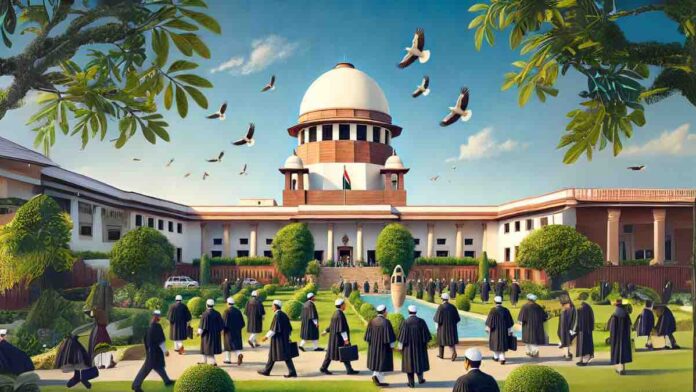In a significant ruling, a bench of the Supreme Court comprising Justice Vikram Nath and Justice Prasanna B. Varale dismissed the appeals in Criminal Appeal No. 1675 of 2015 filed by four individuals convicted of murder. The judgment reaffirmed the principle that a witness’s familial relationship with the victim does not inherently discredit their testimony,
To Read More Please Subscribe to VIP Membership for Unlimited Access to All the Articles, Download Available Copies of Judgments/Order, Acess to Central/State Bare Acts, Advertisement Free Content, Access to More than 4000 Legal Drafts( Readymade Editable Formats of Suits, Petitions, Writs, Legal Notices, Divorce Petitions, 138 Notices, Bail Applications etc.) in Hindi and English.




